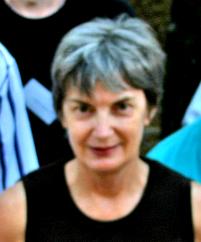Indigenous program gives prisoners a second chance
Published on 17 October, 2007

Laurel HuntEighteen Indigenous prisoners at Australian correctional centres are getting a second chance at education and lifestyle through a Central Queensland University program.
CQU's Tertiary Entry Program (TEP), coordinated by the University's Nulloo Yumbah centre*, is making a difference in the lives of Indigenous Australians who have chosen the wrong path at some stage and found themselves in the prison system.
Nulloo Yumbah's TEP coordinator Laurel Hunt said Indigenous prisoners make up an increasing proportion of the total prisoner population in Australia. In fact, 24% of prisoners in Australia as at June 30, 2006, were Indigenous people. (ABS 2006)
"TEP is an education program and also a rehabilitation program, but we do not address the offending behaviour directly," Ms Hunt explained.
"We encourage our students to recognise for themselves their value as people and instill a ‘can do' attitude to replace the messages they have received throughout their life, schooling and incarceration. There is evidence that participation in education programs can help reduce re-offences.
"TEP gives our students a second chance at education which not only affects them but their families and friends," Ms Hunt said.
TEP students in Australian prisons represent the cross-section of criminal behaviour, from murder to petty theft, hold-ups to unpaid fines or public nuisance and drug offences. Some are in maximum security centres, while others are in minimum security.
"None of our students have access to the Internet, and only some have access to computers, so we have had to be flexible in our approach and understand the conditions our students have to deal with," Ms Hunt said.
"At times there are lock downs, when they cannot access the education centre. Sometimes they are isolated in their cell without their study materials. In some centres education programs are welcomed, but in others education is seen as a privilege which the inmates do not deserve.
"We also find other inmates can give them a hard time about studying and trying to better themselves."
Since 2002, CQU has worked with over 50 students in correctional centres. Three students who went through the TEP program are currently studying for their degrees with CQU while still in prison.
Several have served their time, been released and found employment as a result of their study. And others have applied to other institutions to specialise their study in areas such as music recording.
"TEP provides essential life skills which can immediately apply to managing personal relationships as well as their progression through the prison system."
* Nulloo Yumbah is CQU's Indigenous Learning, Spirituality and Research Centre.

